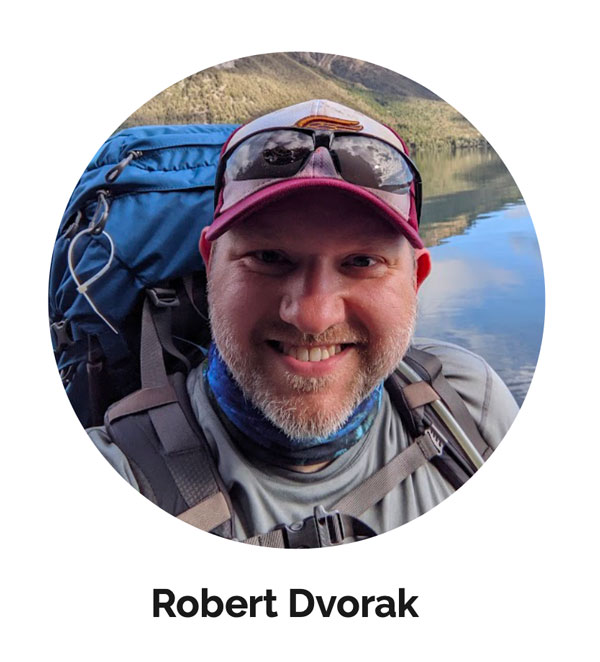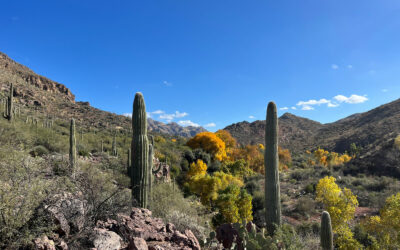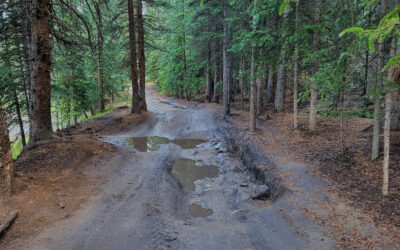Photo credit: Nelson Lakes National Park, New Zealand. Photo by Bob Dvorak.
Forgetting Your Anniversary, Again
by ROBERT DVORAK
Editorial Perspectives
April 2024 | Volume 30, Number 1

“What should I do? I forgot our anniversary, again!”
This is a phrase that many of us hope we do not have to speak: the realization that in our busy world, we have forgotten an important milestone, day, or event. But we can move beyond birthdays, graduations, and marriages to recognize several important anniversaries occurring in 2024. This is the 60th anniversary of the passage of the Wilderness Act, adopted by the 88th Congress and signed into law by President Lyndon B. Johnson on September 3, 1964. It is also the 60th anniversary of landmark civil rights laws, specifically the Civil Rights Act. These pieces of legislation have been foundational moments in our history where we expressed our values and strove to shape our future.
This year also represents the 30th anniversary of the International Journal of Wilderness. In that inaugural issue’s editorial welcome by John C. Hendee, he stated that the vision of the journal was to be “an international voice integrating the wilderness and wildland concerns of scientists, planners, managers, educations and citizen environmentalists, worldwide.” The issue also included an article by Dr. Ian Player, founder of the WILD Foundation, telling the story of the first beginnings of the World Wilderness Congress. As that inaugural issue of IJW announced the 6th World Wilderness Congress in Bangalore, India, we are likewise happy to announce the 12th World Wilderness Congress (wild.org/wild12) in the Black Hills of South Dakota, USA, in August 2024.
One of the immense values of IJW is the ability to access its free archive (ijw.org) and look back upon 30 years of wilderness science and stewardship. In that first issue, you can see the foundational work of many individuals, including Dr. Hendee, Dr. Alan Watson, Vance Martin, Dr. Chad Dawson, and others. While some things have changed since that first issue (the editorial staff asked if subscribers were on email and would prefer to correspond that way), you can still see the DNA of IJW that has sustained itself over 30 volumes to be the premier tool for wilderness experts, scientists, educators, and professionals.
It is important to take a moment and acknowledge these milestones and the numerous individuals that have contributed both to IJW and the cause of wilderness preservation across the world. But as much as we enjoy both looking back and the nostalgia that an anniversary brings, it is an occasion for reengagement, revival, and commitment. Whenever an anniversary arrives, we can do more than reminisce on the past; we can take advantage of the opportunity to engage new relationships and begin new collaborations. It is a chance for us to share our passion and enthusiasm for wild spaces with others and bring new voices to the cause of global wilderness. If we can achieve these things, then we truly will not forget any of our anniversaries again.
In this issue of IJW, Paul Keeling shares thoughts on the trouble with virtual wilderness. Will Rice and Chris Armatas examine visitor perspectives on dams in wilderness. Tangy Ekasi-Otu discusses the power of managers as collaborative hosts. Caleb Meyer and others investigate opportunities for solitude or unconfined recreation on the Colorado Plateau. And Martin Hawes and Grant Dixon continue our “Wilderness Babel” series with perceptions of wilderness in Australia.
ROBERT DVORAK is editor in chief of IJW and professor in the Department of Recreation, Parks, and Leisure Services Administration at Central Michigan University: email: dvora1rg@cmich.edu.
Read Next
The Trouble with Virtual Wilderness
How the history of the 20th-century wilderness movement might give us different moral guidance as we confront this new technology.
Revisiting Human’s Role in Wilderness
The question we must ask ourselves today is familiar: Are we guardians, or are we gardeners?
The Road to Wilderness Is Not Paved
The purpose of the research is to determine how accurate and comprehensive the regulations are that are posted on trailhead kiosks.



